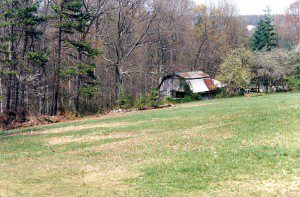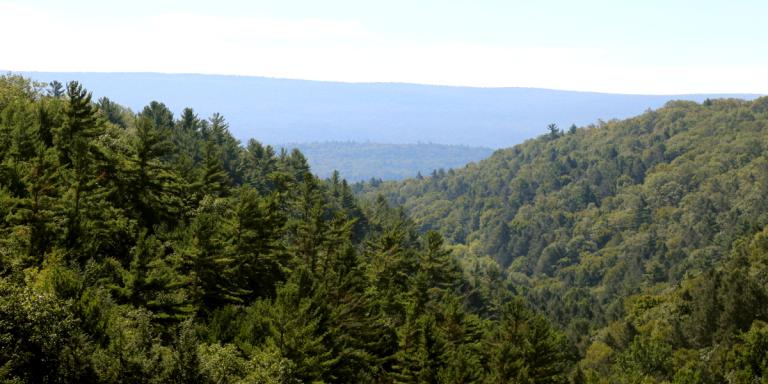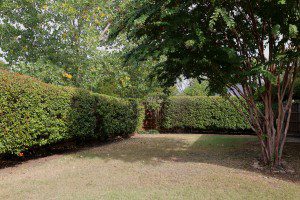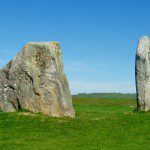The history of humanity is the history of migration. It’s the story of immigrants and refugees, and it’s the story of invaders and colonists. I’ve said this several times, but I’m going to keep saying it because it’s important.
Some of those immigrants moved from sheer desperation and some moved from ordinary greed. Some dealt honorably with the people who were already there and many didn’t. Some were received with compassion and many weren’t – and aren’t.
Some settled for three days and some settled for three millennia.
Regardless of where they were and how long they stayed, they were dependent on the land to support them. Hunter-gatherers and farmers instinctively understood this, but in the Industrial Age we have been severed from the land. The Pagan revival began in large part as a reaction to this separation, and most contemporary Pagans and polytheists understand the need to form and maintain strong connections with the land and the spirits of the land. We’ve long understood that a spiritual practice takes different forms in the desert than in a forest, but we’re starting to learn that one forest is not the same as another forest (or at least, I’m starting to learn it). A Pagan practice is the intersection of a particular set of ancestors, Gods, and place.
This presents some challenges for those of us living in places where we and our tribes are relative newcomers.

I’m of European ancestry, but I’m not European. Neither my parents nor my grandparents ever set foot in Europe. The one genealogical line I know has been in this country for six generations – they were born, lived, died, and were buried in the United States. That makes me an American. Right now my home is Texas, which the Spanish took from the Caddo, Comanche, Apache, and others. The Mexicans took it from the Spanish, then the Americans took it from the Mexicans. I came here in 2001 and I’ve been here longer than many of my neighbors.
From a practical side, we simply don’t have the deep, heart-felt, ancestral connections to the land where we are. From an ethical side, we have concerns about how we came to hold this land and the way our not-very-distant ancestors treated the people who were here first. And yet as Pagans, we recognize we need a connection to the land.
There are two things that will help us make that connection authentically, but they are hard.
First, we can acknowledge the harm our ancestors did to the First Nations of this land, and that the legacy of their actions continues to harm Native Americans to this day. This isn’t about guilt. It’s about accepting reality, and understanding why we can’t simply adopt the practices of the people who lived here before us. This can move us to a greater respect for the First Nations and their cultures, and lead us to do a better job of supporting their concerns.
But people have been immigrating and invading for as long as we’ve been human. Regardless of how our ancestors got here, it’s time to accept that we are here, we’ve been here, and we’re going to be here a good while longer.
 I remember when Cathy and I moved to South Bend, Indiana in 1995 – it was my first time living more than 100 miles from home. I hated it. Much of the problem was with my job: a bad job working with some genuinely bad people. But the place was unfamiliar: it was flat and cold, you couldn’t get decent barbeque or Mexican food, and they didn’t observe Daylight Saving Time (I’m not a fan of DST, but what’s worse is ignoring it when the rest of the world observes it – we spent half the year in the Central time zone and the other half in the Eastern time zone).
I remember when Cathy and I moved to South Bend, Indiana in 1995 – it was my first time living more than 100 miles from home. I hated it. Much of the problem was with my job: a bad job working with some genuinely bad people. But the place was unfamiliar: it was flat and cold, you couldn’t get decent barbeque or Mexican food, and they didn’t observe Daylight Saving Time (I’m not a fan of DST, but what’s worse is ignoring it when the rest of the world observes it – we spent half the year in the Central time zone and the other half in the Eastern time zone).
We barely got moved when I realized that taking the job was a mistake that would not be easy to fix. For the first six months, I found excuse after excuse for not decorating the house, not organizing the garage, and not exploring the area. I was acting like a transient – and hoping that I was a transient. Eventually, I realized I was going to be there a while, and I needed to make the place feel like home, even if it wasn’t. We finished setting up the house and starting finding nearby places to go and things to do. I accepted that at least for the immediate future, Indiana was my home and I belonged there. It didn’t make the bad job any better, but it made living there a lot easier.
This land is your land. Not in the sense of ownership – no matter what that piece of paper in the courthouse says, no one truly owns the land. It was here long before we got here and it will be here long after we’re gone. The land is sovereign – like all living things, it possesses its own inherent dignity and worth.
Rather, this land is your land in the sense of belonging. It’s your land in the same way we speak of your family or your town or your country. You’re here. You’re not going away. Start acting like you belong here. Start forming relationships with the land where you are. Not with some elemental concept of Earth (though there is value in that as well) and not with some vague idea of The Planet, but with the land and the spirits of the land where you are.

Connect to the land with your body. Touch it, smell it, taste it. Dig in the dirt, hug a tree, listen to the birds, watch the squirrels. Step outside during a dense fog or a light rain. Learn where the sun rises and sets through the course of the year. See what kinds of trees are in your neighborhood, what kind of birds live in the trees, and what kind of insects those birds eat. Walk the land every day, even if it’s just in your back yard, even if you live in a city and the ground is covered in concrete. Listen to the land.
Honor the spirits of the land. Speak to them: address them respectfully and introduce yourself. More importantly, listen for them. Make offerings, but be wary of assuming traditional Native American offerings like tobacco and cornmeal are required or even proper. Honor them in your way. Not sure what that is? Ask them. When it doubt, clean water is always appropriate.
Remember that while Gods, ancestors, and Nature spirits vary in age, power, and scope, they aren’t radically different beings. Show the spirits of the land the same kind of respect you would show an ancestor or deity.
Care for the land. It’s your land, remember? You’re a part of it and you’re dependent on it. You – and those who come after you – have a personal interest in maintaining clean air and water, healthy soil, and a living, thriving ecosystem. More importantly, the land has inherent dignity and worth – treat it with the respect, devotion, and love you show your family members. The ones you actually like.
Build a relationship where you are. Few North American Pagans have an ancestral connection to the land going back more than a couple hundred years. Most of us have far less than that. Even those of us who have something of a connection (as I do to my birthplace in southeast Tennessee) are often forced to abandon it when jobs are eliminated and we have to move to find a new one. But we can start building new, healthy, respectful connections, and in doing so, make the land where we are truly our home.
Be sure to listen to the whole song – I never heard the fourth verse when we sang “This Land Is Your Land” in elementary school.

















